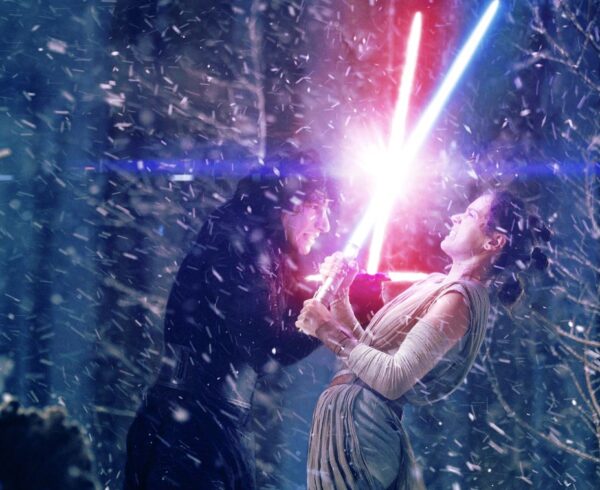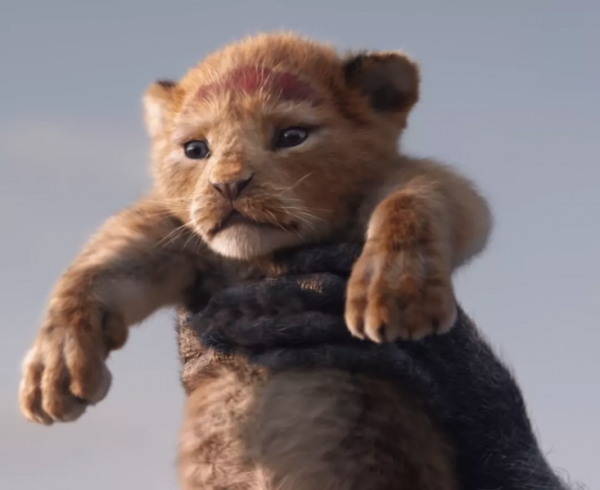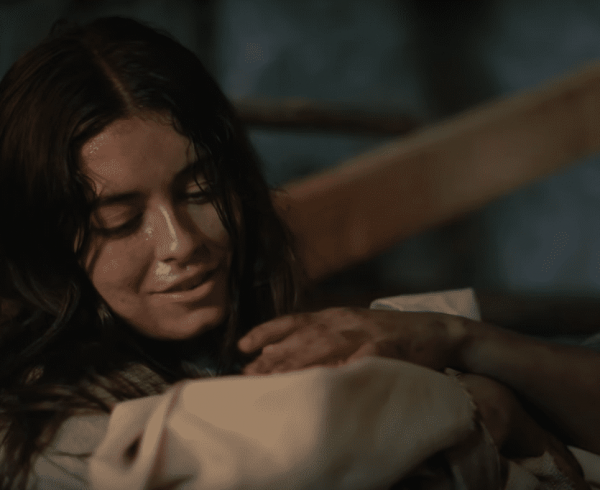‘Darkest Hour’: When One Man’s Character Made All the Difference
Darkest Hour is a gripping, heroic drama about the most important five days in history. It grabs you and holds you tight from beginning to end, and will wring some tears from your eyes. Its achievement is all the more extraordinary when you consider all the reasons why it really shouldn’t work:
- Very little happens. A politician, Winston Churchill (Gary Oldman), takes office. He goes to a series of meetings, and argues with some of his colleagues. He’s bullied and pressured into one decision, then takes a ride on the London Underground, and regains his first resolve. Then he makes a speech announcing it.
- There is little room for suspense. The outcome is well-known history. While the behind-the-scenes machinations are news to most of us, we know their broad shape in advance. Hitler never conquered England, and Churchill never surrendered.
- The whole story is about one man making his mind up, holding firm in the face of opponents, then finally winning them over. Though World War II is raging, we witness no scenes of combat. The antagonists are polite British aristocrats who rarely raise their voices—even as the fate of the world is at stake. It’s a drama of persuasion and leadership, which hinges on the rarely depicted virtue of Fortitude.
As a screenwriter myself, I can summon up the “pitch” meeting where the film’s creator tried to sell it to producers, who likely threw back at him each of the challenges I just listed. It’s not that they’d have to prevent a film from working. They just meant that every element in the film would have to be executed brilliantly, or else it would fail. That Darkest Hour would be a high-wire act of filmmaking. One misstep—in the writing, acting, or directing—and it would become unwatchable, another high-minded project that quickly went to Netflix, then oblivion.
A Stunning Achievement Against the Odds
Writer Anthony McCarten, director Joe Wright, and the cast led by Gary Oldman pull it off. Like a troupe of amazing trapeze artists, they do what seems impossible, and even make it look easy. You don’t leave Darkest Hour thinking, “That shouldn’t have worked, but it did!” Instead, you might wonder why more movies like this don’t get made about key episodes in history. You’re hungry for more.
Gary Oldman brilliantly impersonates Winston Churchill. That didn’t surprise me, given his long track record of fiercely competent performances. (It’s sobering to remember that back in the 1980s, a lean young Oldman did an equally good job playing Syd Vicious.) Costumed to look stout and flabby as the aging Churchill already was, Oldman blows on the coals inside the waddling epicure, until their blaze almost blinds us. We understand why so many of his rivals found Churchill insufferable, and considered him either an opportunist or a monomaniacal crank.
Most of the other British leaders we see here are gray men. They’re wrapped tight by “respectable” opinion and “realistic” estimates, which all suggest that Hitler is unstoppable, that Britain must cut a deal with him before he leveled all their cities and stormed Britain’s beaches. But behind all that, they’re deeply haunted by the slaughter of World War I.
That completely needless catastrophe butchered a generation, including many of their close friends and relatives. Most English by 1940 saw the war of 1914-18 as the fruit of clumsy, blustering bad diplomacy. None of them wanted to be the man to reignite it. They pressed Churchill hard to accept the “inevitable” and open up peace talks with Hitler via his “reasonable” junior partner “Signor Mussolini.” That wasn’t because those Britons were secretly fascists. They were patriots, but pessimists. They had given in to despair.
On the Brink of Catastrophe and Collapse
As historian John Lukacs points out in his brilliant history of the events seen in Darkest Hour, Five Days in London, the “reasonable” course of action they were proposing was in fact an irreversible blunder. If after the French collapse, the British government had started negotiating with Hitler, morale across the country would have collapsed. The pressure to take a deal, almost any deal, would have become irresistible. Hitler would have gotten everything he wanted from the English, and ruled Europe unchallenged.
Most of Churchill’s own war cabinet saw him as a reckless, warmongering gambler. As Patrick Buchanan pointed out in his controversial Churchill, Hitler, and the Unnecessary War, Churchill had greeted the First World War with eagerness. (Six months into that horrible war, Churchill admitted, “I think a curse should rest upon me—because I am so happy. I know this war is smashing and shattering the lives of thousands every moment and yet—I cannot help it—I enjoy every second.”)
Churchill had thought up and pushed for the catastrophic attack on Gallipoli, which saw tens of thousands of British and Imperial forces slaughtered. Then after the war, Churchill had adopted a fiercely anti-German policy, constantly warning Britons of the danger that country posed — when it was led by Social Democrats, and Hitler was still a homeless crank, haranguing German veterans in seedy beerhalls.
That history bubbles up when King George VI meets with Neville Chamberlain, a fading, exhausted figure humiliated by his failed attempts to “appease” Nazi demands and fend off war. The subject of the meeting is the need for Chamberlain to resign and give way to Churchill, whom the king fiercely distrusts. Humbly, even plaintively, Chamberlain says to the king of Churchill, “Well, he was right about Hitler.” The king speaks for much of his country when he answers, “Well, a stopped clock can be right.”
The Man Meets the Moment
But as the movie shows us, while national panic spread in the face of advancing evil, precisely what Britain needed was a man who knew what time it was, and that his hour had come. The man had met his moment. However wrong he might have been in the past, Churchill had the self-confidence and sheer ambition to learn from his own mistakes. Indeed, he’d tried to atone for his bad judgment over Gallipoli by resigning from Britain’s cabinet and serving in the trenches as an ordinary soldier.
Imagine Donald Rumseld or Dick Cheney resigning over Iraq, and joining the U.S. infantry in Baghdad! You can’t, can you? But Churchill did.
It’s hard for us today to imagine what a juggernaut the Nazis seemed to be. Remember that the Germans started the war outnumbered in tanks and planes and soldiers by the Anglo-French alliance. Yet Hitler’s forces crushed the vast French army in little more than a month. The entire British army was stranded at Dunkirk, with no plausible plan for bringing those 600,000 men home. Prewar myths had Britons convinced that the Luftwaffe was practically unstoppable, and that it would likely level their homes and cloud their cities with poison gas—turning their peaceful island into one vast No Man’s Land.
These brutal fears, with much truth behind them, are Churchill’s true antagonists in Darkest Hour. All he can summon against them is the depth of his conviction and the power of his words. As the film ends with Churchill’s most famous and powerful speech (“We will fight on the beaches….”), his rival Lord Halifax sums up Churchill’s achievement. (The writer, pardonably, lifted a quote from newsman Edward R. Murrow and put it in Halifax’s mouth.) Churchill had “mobilized the English language and sent it into battle.”
January 23 update Darkest Hour is nominated for six Academy Awards: Best Picture, Best Cinematography; Best Production Design; Best Costume Design; Best Makeup; Best Actor.












